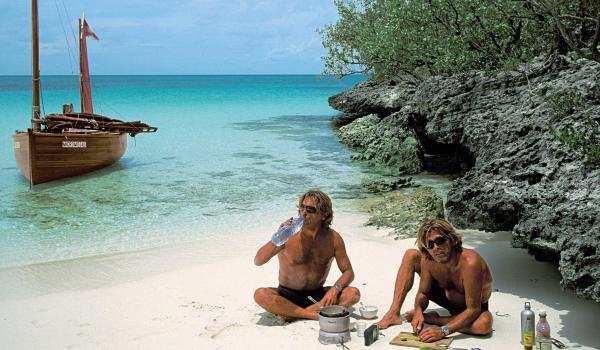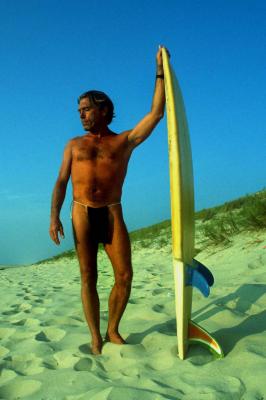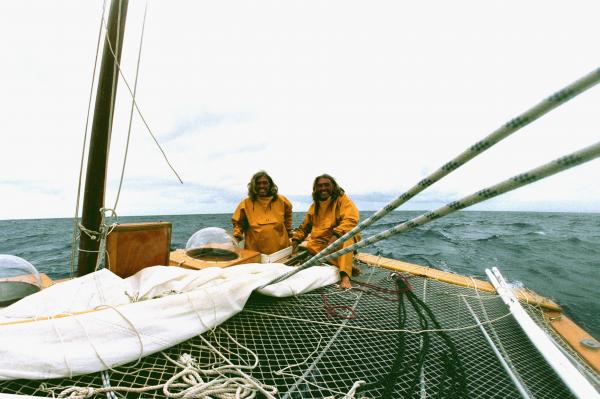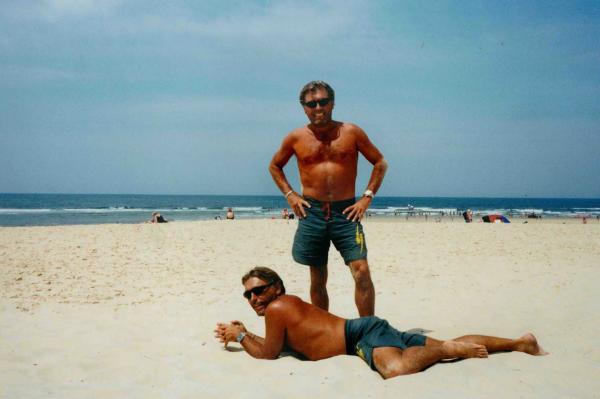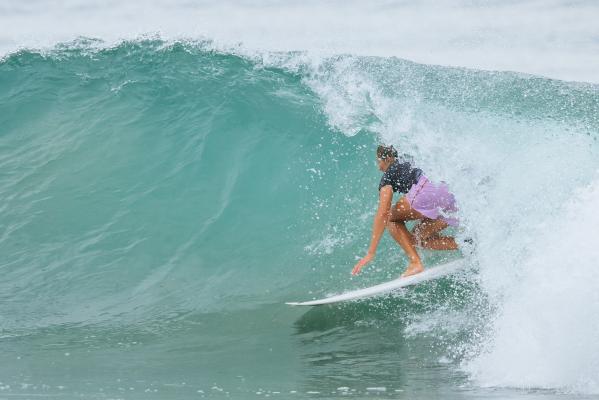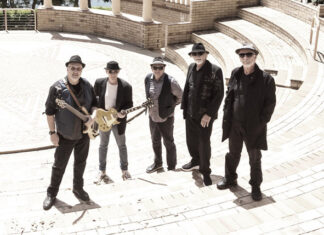“I ain’t been twin since yesterday,” the surfing mariner Emmanuel Berque posted on social media last week. “Maximilian fell asleep peacefully, but didn’t wake up anymore … gone naked and without any instruments.”
Just as they had made their Atlantic crossings, alone in their tiny sailboats, navigating wild seas by the stars. And with those simple words, Manu brought the curtain down on the strange and wonderful lives that these identical twins shared. Having known them for 25 years and visited them often at the humble family holiday home, I could picture the scene that morning in the tiny bedroom they shared, sleeping side by side on thin mattresses, and it brought a tear.
They were born five minutes apart in 1950 in Casablanca, where their father was professor of Islamic studies, spent their early years around the Middle East before returning to Paris for school and university. But it was at tiny Contis-plage, between Bordeaux and Biarritz, that they found their spiritual home, becoming free-living itinerant surfers in the 1970s and shifting their attention to bigger craft in the 1980s.
In the loft of the family home in St Julien, behind Contis, they started to build a 16-foot trimaran. It was the simplest boat imaginable, and in it they planned to cross the Atlantic with no instruments, the stars their guide. They named the boat Micromegas in homage to Voltaire’s theories on relativity, metaphysics, love, and sex, which closely paralleled their own.
They knocked a hole in the loft wall, lowered it onto a trailer, and launched it off the beach at Contis. After spending the summer sailing the north coast of Spain with a dog and four surfboards, they decided to sail it to the Canaries, but just two days out in the Bay of Biscay they ran into a huge storm, lost the tiller, and had to paddle for their lives for four days. Badly burnt by sun and saltwater, exhausted and sleep-deprived, they headed back to Contis-Plage to lick their wounds.
In 1995, the Berque twins crossed the Atlantic for the first time, in three stages, with no radio, GPS, distress beacon, life raft, or motor. They battled storms into North Africa, missing Madeira completely and doing a repair stop in Casablanca before finally reaching Lanzarote. They sailed for the West Indies and made the crossing in 37 days. Max and Manu came home to Contis not quite wealthy and not quite heroes, but deeply satisfied.
I realised the Berque boys were consummate crowd pleasers when I saw them in action at the Biarritz Surf Festival, identically dressed, doing their identical walk along the promenade. The visiting legends were mesmerised by them and by their work. When I took the late Midget Farrelly to see the production facility in the loft of the old farmhouse, he couldn’t believe it. We later went body-surfing and spent the afternoon in their garden drinking red wine, mesmerised.
One of the funniest images I can recall of my 50th birthday party—held in Dan’s Bar in Contis-Plage—is of the Berque twins, down on their knees in front of the stage, bowing in gratitude to the sexy and scantily-clad Texas blues-woman Dan had somehow liberated from a nearby blues festival to play a cheap gig with a bunch of Austin blues-pickers.
The singer thought it so funny she could barely finish her set. But the Berques’ party antics were hiding the glowing beacon of an idea for a new adventure that had begun to consume them. Their father had passed on in 1998 and left them with a small inheritance, enough to finance the construction of Micromegas III.
The third Micromegas was a 21-foot outrigger, combining the displacement hull theory of the Pacific seamen with the lugger schooner rig of the sailors of Brittany. People may have scoffed at the seaworthiness of the Berques’ creations, but no one could dispute their cultural integrity.
In 2002 they staged it to the Canaries and again they encountered dreadful seas, at one stage broaching a rogue wave and almost losing all. The twins went 17 days without seeing the sun, getting a taste of what was to come. But their resolve was unbroken. This time they would cross the ocean direct without instruments or assistance.
Stocked with 90 litres of water, 16 kilos of gofio, 90 tins of sardines, 30 bottles of Tabasco, and no cooking equipment, they set sail from Arrecife on the last day of March 2003, with 30 tough days ahead before their prayed-for landfall at La Desirade, a small island near Guadeloupe. I was living in France at the time and sporadically followed the voyage of my friends via a fairly basic website, but I don’t think any of us really understood the physical endurance and emotional complexity of this voyage of two identical twins, a single egg split in the womb, now cocooned again on a raging sea, their spirits so enmeshed by physical and emotional proximity as to threaten their capacity to breathe.
And now Max is gone, I hope my friend Manu remembers to breath.
FOOTNOTE: Well, we got three Aussies in the final 10 for the World Surf League finals series at Lower Trestles, California, next month. Tour rookie Morgan Cibilic was already in the cut with Sally Fitzgibbons, and seven-times world champ Steph Gilmore secured her place with a brilliant victory at Barra de la Cruz in Mexico last week. The 2021 world titles for men and women will be decided in just one day.

